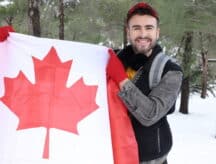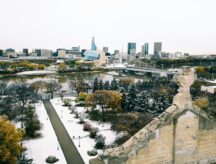Struggling pupils to get boost from reading and math funds
Karen Grose knows exactly what her downtown Toronto school will do with its share of the $65-million in additional funds announced by the provincial government yesterday to help improve reading and math skills for students from low-income and single-parent families.
The former principal of Parkdale Public School said the elementary school will use the money to pay for things such as take-home "literacy loot bags" and family literacy nights aimed at improving skills among the school's largely immigrant and low-income population.
"These are kids that have just literally flown into Toronto, and it's the first time they've ever seen another country," Ms. Grose said yesterday. "They don't have a schooling skill set that is as prepared as some other children, and there may be gaps in their education that put them at a disadvantage when it comes to reading and math."
Ontario Education Minister Gerard Kennedy earmarked the funds yesterday for the province's Learning Opportunities Grant, more than half of which will go to the Toronto District School Board and the Toronto District Catholic School Board to help pay for literacy and numeracy programs. The boards will be required to report on how the funds are used.
The funding is in addition to $95-million allocated to the grant last December and is aimed at improving education achievement for students "who are struggling the most."
"This is a very urban grant. It's obviously dictated in part by population and in part by the incidence of kids with these particular struggles," Mr. Kennedy said yesterday at the annual meeting of the Elementary Teachers' Federation of Ontario. "Our urban boards have struggled because their factors have not been fully recognized. There will be significant dollars for anywhere that has those particularly vulnerable groups of kids."
Gerry Connelly, associate director of the Toronto public board, said yesterday that the funding comes at a critical time for some of Toronto's most vulnerable students. "One of the things we want to do as a system is level the playing field. We should be able to look at the city and not see a negative correlation between low scores and high need," she said.
According to the Education Quality Accountability Office, a provincial testing agency, schools with the highest percentage of students from low-income neighbourhoods saw only 42 per cent of their students achieve the provincial standard for reading, compared with 55 per cent of students in other neighbourhoods.
Ms. Connelly said the $24.7-million allocated to Toronto public schools by the province will be used in 150 schools to help pay for additional staff, including literacy co-ordinators for early- and middle-years literacy programs.
"The first few years are absolutely critical. Anything that we can do to support students at that point not only helps them be successful . . . in literacy and numeracy, but helps them in all of their subject areas," she said.
- Do you need Canadian immigration assistance? Contact the Contact Cohen Immigration Law firm by completing our form
- Send us your feedback or your non-legal assistance questions by emailing us at media@canadavisa.com



